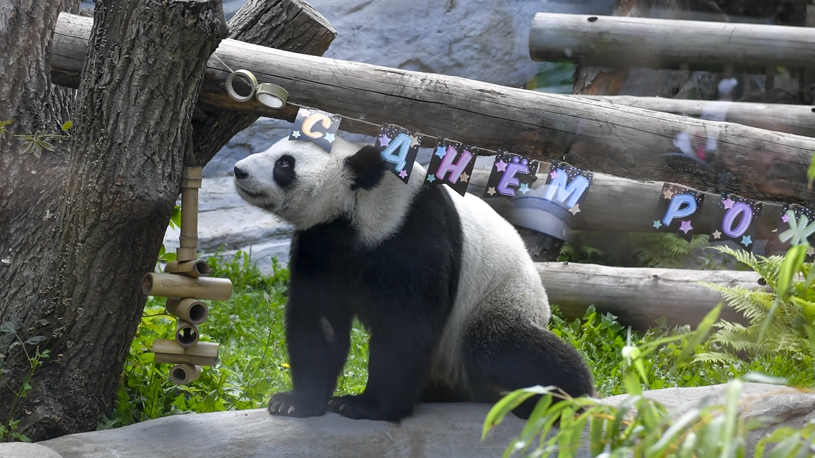by Burak Akinci
ANKARA, July 31 (Xinhua) -- Amid lavender fields in Lalapasa, a town in Türkiye's northwestern Edirne province, Nuri Danisman guides visitors past humming hives, offering golden spoons of honey.
"We produce high-quality lavender honey and share our unique experience with guests in an eco-friendly way through apitourism," the beekeeper told Xinhua.
"Tourists really enjoy our tours through the lavender fields and around our honey production sites," he said.
His tours represent a growing lifeline for Türkiye's apiculture sector -- a pillar of the country's economy with nearly 9 million hives, almost 98,000 registered enterprises and some 100,000 tons of honey produced yearly -- now battling to survive climate chaos.
Drought, erratic blooms, and scorching temperatures are disrupting nectar flows. "Each year the flowers bloom earlier or later, and the rains come at the wrong times. Our bees cannot keep up," said Burak Yalcin, a second-generation beekeeper from eastern Sivas province.
"We've been losing colonies every season now," he said.
Compounded by pesticides and parasites, these pressures have pushed the Turkish Agriculture Ministry to urge diversification earlier in July: organic practices, disease control, and value-added products like royal jelly, propolis, and bee venom. Among all the efforts,apitourism has emerged as a potential antidote.
"We're planning to open up our hives to small tour groups. People are curious. They love watching the bees at work. It may bring in a bit of money and helps raise awareness about how essential bees are," Yalcin said.
"In a climate-stressed world, farmers can no longer rely on just one source of income. Tourism builds resilience," he said.
"Tourists can meet local beekeepers, explore traditional hives, sample a variety of honeys, and even try apitherapy, wellness treatments using bee-derived products," Bulent Bacioglu, head of the Edirne Promotion and Tourism Association, told Xinhua, noting that this "green tourism" model can help revitalize rural areas.
From the coasts of Mugla city to the plains of Adana city, beekeeping remains woven into Türkiye's identity. Though climate stress forces adaptation, the biodiversity of this country, rich in alpine pastures and pine forests, offers hope for the future.
As Danisman brushed pollen from his sleeves, his conviction mirrored the industry's spirit:
"We still have so much to offer ... If we take care of our environment and keep adapting, beekeeping can continue to flourish."■











